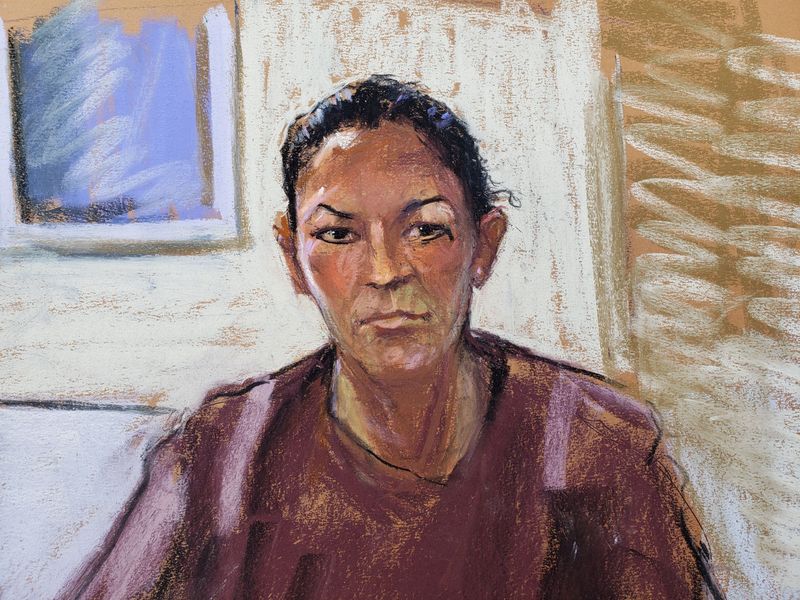By Jonathan Stempel
NEW YORK (Reuters) - Ghislaine Maxwell's chance of a fair trial on criminal charges she aided Jeffrey Epstein's sexual abuse of girls could be destroyed by substantial negative publicity if a deposition she gave four years ago were publicly released, her lawyers said.
The lawyers made the argument in a Thursday night filing asking the 2nd U.S. Circuit Court of Appeals in Manhattan to reverse a lower court judge's order to unseal the deposition and other documents.
Maxwell's deposition had been taken in April 2016 for a now-settled civil defamation lawsuit against the British socialite by Virginia Giuffre, who said Epstein kept her as a "sex slave" with Maxwell's assistance.
Lawyers for Maxwell said the unsealing order did not take into proper account their client's privacy interests or the promise of confidentiality she received before being deposed.
"If the unsealing order goes into effect, it will forever let the cat out of the bag," the lawyers said, warning that "intimate, sensitive, and personal information" about Maxwell might "spread like wildfire across the Internet."
The lawyers also said an unsealing would cause irreversible and unconstitutional negative publicity, and undermine the "truth-seeking function" of Maxwell's trial by leading witnesses to "recast their memories of events from decades ago."
Maxwell, 58, has pleaded not guilty to helping Epstein recruit and eventually abuse three girls, who prosecutors did not publicly name, from 1994 to 1997, and to committing perjury by denying her involvement under oath.
She was arrested on July 2 in New Hampshire, where prosecutors said she was trying to evade capture, and is being held in a Brooklyn jail after a judge called her a flight risk.
Maxwell's trial is scheduled for next July.
Epstein was found hanged at age 66 last August in a Manhattan jail while awaiting trial on sex trafficking charges.
Giuffre has been one of Epstein's most visible accusers, and her lawyers have said the public has a right to see Maxwell's deposition.
Lawyers for Maxwell disagreed, saying her constitutional rights to remain silent and get a fair trial by an impartial jury outweigh any presumption of public access.
Maxwell would not be required to testify at her trial.
A lawyer for Giuffre did not immediately respond to a request for comment.
Oral arguments are scheduled for Sept. 22.
Some documents from the defamation case were released last month. Maxwell's lawyers asked the appeals court for permission to seal more than 1,000 pages of additional materials, which include her deposition, filed with the appeal.

Maxwell is separately seeking to have prosecutors identify the three accusers in her indictment and challenging her confinement conditions at the Brooklyn jail, saying she is being treated worse than other pretrial inmates.